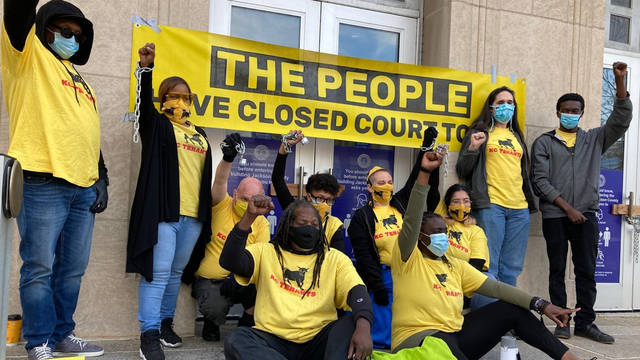City of Los Angeles Records Two COVID-19 Deaths per Hour
–
The United States has recorded its second worst day since the start of the pandemic after breaking records for coronavirus cases and deaths the previous day.
On Thursday, the United States registered more than 233,000 new infections and almost 3,300 deaths. Intensive care units in Southern California and other parts of the state are reporting they have run out of intensive care beds. On average, two people die from COVID-19 every hour in the city of Los Angeles.
Meanwhile, attorneys representing patients at Patton State Hospital, the largest state psychiatric hospital in southern California, are demanding the discharge or transfer to other hospitals of hundreds of people, due to a massive coronavirus outbreak there. center that has infected almost 700 patients and has caused the death of ten of them. Attorneys describe Patton State Hospital as a “tinderbox” for COVID-19.
Millions of people across the United States could be forced from their homes amid the pandemic if Congress does not extend the federal extension on evictions that expires at the end of December. Congress is considering extending the extension for another month, until January 31, as part of the $ 900 billion stimulus bill currently being debated in Washington. However, such an extension of the extension would only be a temporary solution to a much larger problem. According to the US Census Bureau, one-third of the nation’s households are behind on their rent or mortgage and are likely to be evicted or foreclosed in the next two months. We spoke with UCLA researcher Kathryn Leifheit, for whom the lifting of state extensions on evictions after mid-year led to 430,000 new infections and 10,000 deaths from COVID. “We believe that these deaths are preventable and could have been avoided if these extensions had been maintained,” says Leifheit. We also spoke with tenant rights activist Tara Raghuveer, for whom the federal eviction extension “was by no means enough”, but if they let it expire, “millions of vulnerable families would be evicted in the first twenty days of the next year”.
To expand this information, see the conversation we had with Kathryn Leifheit and Tara Raghuveer.
–
–


